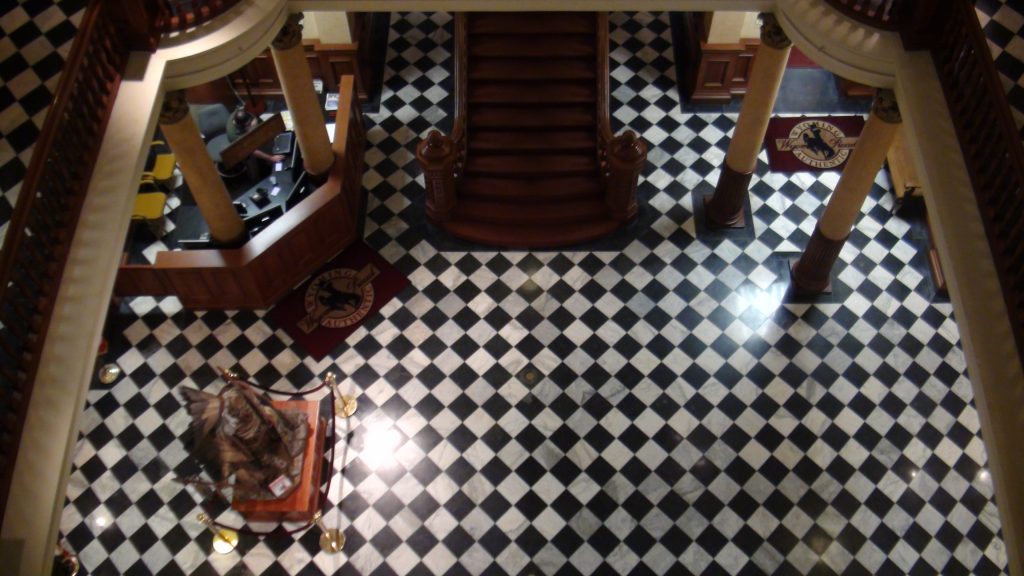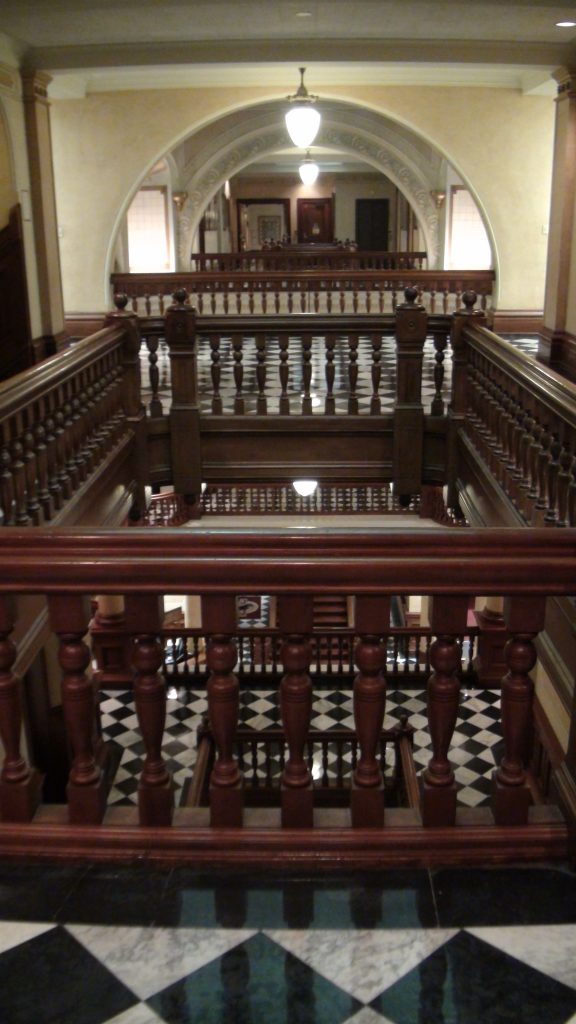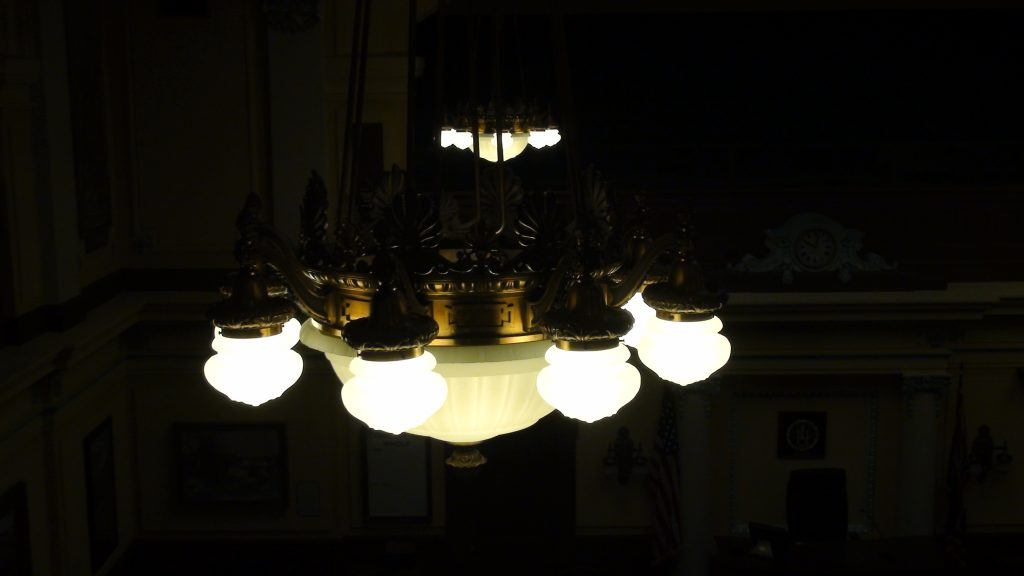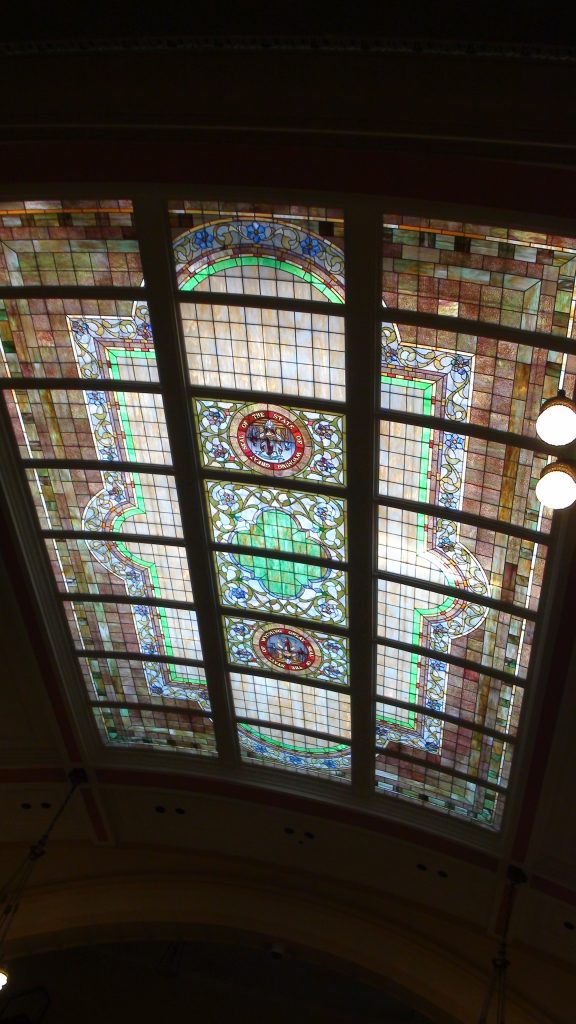Looking down on the first floor of Wyoming Capitol.
Sunday, 16 June 2024
Now when we came to Rome, the centurion delivered the prisoners to the captain of the guard; but Paul was permitted to dwell by himself with the soldier who guarded him. Acts 28:16
Note: You can listen to today’s commentary courtesy of our friends at “Bible in Ten” podcast. (Click Here to listen).
You can also read this commentary, scrolling with music, courtesy of our friends at “Discern the Bible” on YouTube. (Click Here to listen), or at Rumble (Click Here to listen).
The NKJV is just a tad off in the tense of the final verb: “And when we came to Rome, the centurion delivered the prisoners to the commander of the army. And Paul was allowed to stay by himself with the soldier guarding him” (CG).
In the previous verse, those in the church at Rome came out a day’s journey to meet him as he was entering the city. Now, the narrative continues with, “And when we came to Rome.”
The promise and prophecy of the Lord found in Acts 27:11 has been realized –
“But the following night the Lord stood by him and said, ‘Be of good cheer, Paul; for as you have testified for Me in Jerusalem, so you must also bear witness at Rome.’”
With him having safely arrived, even if as a prisoner, Luke next notes that “the centurion delivered the prisoners to the commander of the army.”
Here is another word found only once in Scripture, stratopedarches. It is derived from stratopedon, an encamped army, and archo, to reign or rule.
Of note is that the name Julius was only mentioned in Acts 27:1 and 27:3. Other than that, he is called the centurion. The reason may be that this book may have been written for the purpose of being an official record of the establishment of Christianity within the parameters of Judaism.
As Judaism was officially sanctioned by Rome, then if Christianity was considered under the umbrella of Judaism, it would also be considered a religion sanctioned by Rome. In order to keep any hint of impropriety away from the actions of Julius, such as giving too much favoritism or privilege to Paul, his name is carefully left out of the record.
It could even be that after such a long time together with Paul, he became a believer himself. If so, then that could possibly cast a negative light on his dealings with Paul. As an officer, he would be required to execute his duties to Rome in an impartial manner. This is exactly how Luke details his conduct.
He is not mentioned by name even though a strong bond of respect had grown between him and his travel companion Paul. And so, it merely records now that it was “the centurion” who delivered the prisoners to the captain of the guard. No special note is made concerning Paul. Luke lumps him in with all the others for the official handover to their new keeper.
With that complete, it next says, “And Paul was allowed to stay by himself with the soldier guarding him.”
Even before the sentence ends, Paul’s status is brought back into the narrative, showing that he was considered a prisoner, even if he had certain privileges extended to him. For this, no reason is given.
If a letter accompanied him from Festus to allow this, it would probably have been stated as such. If it was because he was a Roman citizen, Luke may have said this as well. If it was because of him being a better class of prisoner, Luke would have certainly expressed it. However, the reason is left unstated.
Luke’s silence on why the treatment is granted to Paul speaks out loudly, allowing us room to speculate. Many scholars have stated their guesses. It could be that Julius himself noted Paul’s situation, his status, and his character to the captain of the guard.
If his time with Paul was fraught with grief, he would have said, “Watch this fellow, he’s as slippery as an eel.” If so, no such freedoms would have been forthcoming. Instead, it appears that a good word concerning Paul was passed on.
Whatever the truth of the matter, Julius had certainly heard the gospel numerous times in the months he had spent with Paul. He had seen the snake bite him on the night they were shipwrecked. He had seen the healings of the people on Malta, he had personally known the high and noteworthy character of Paul, and he had seen how Paul had held fast to the Lord he claimed to honor.
If Julius became a believer during his time with Paul, he must have been one whose faith was well grounded in the same hope of Christ that Paul had expressed. If he never came to faith in Christ, it would be hard to think of a person more worthy of condemnation on that great Day of Judgment than him.
He had been exposed to the Christian faith like few others ever had. He had accompanied the Lord’s personal choice to carry this wondrous message to the Gentile world. We can look to see if his name is on the rolls of the redeemed shortly after we arrive there.
In Paul’s confinement, he is given pretty much the same type of treatment that he had during his time in Caesarea. He would be chained directly to the soldier appointed to guard him. Together, they lived in their own dwelling as they awaited Paul’s continued trial before the Roman government.
Life application: We are asked to accept the gospel by faith. We have the fully complete word of God to help us reason out our faith. It is not a blind step into darkness, but a bold step into God’s revealed light. What more do we need?
We should not be anticipating signs to accompany our doubts or to help us make a decision for accepting or rejecting the gospel. Everything we need to make a reasonable conclusion about what God has done is available to us. In the pages of the Bible, may you find the hope that God has accomplished everything necessary to return you to Himself. And then may you make the wise decision to accept the simple gospel of your salvation.
Christ died for your sins according to Scripture. He was buried. He rose again on the third day, according to Scripture. Believe, to the saving of your soul!
Lord God, within Your word is the simple message that You have done everything necessary to restore us to Yourself. Even if the Bible is a big and complicated book, the overall message is not. Jesus! We need Jesus who has done it all for us. Help us to have faith that it is so and to be saved through the good news found in Your word. Amen.





